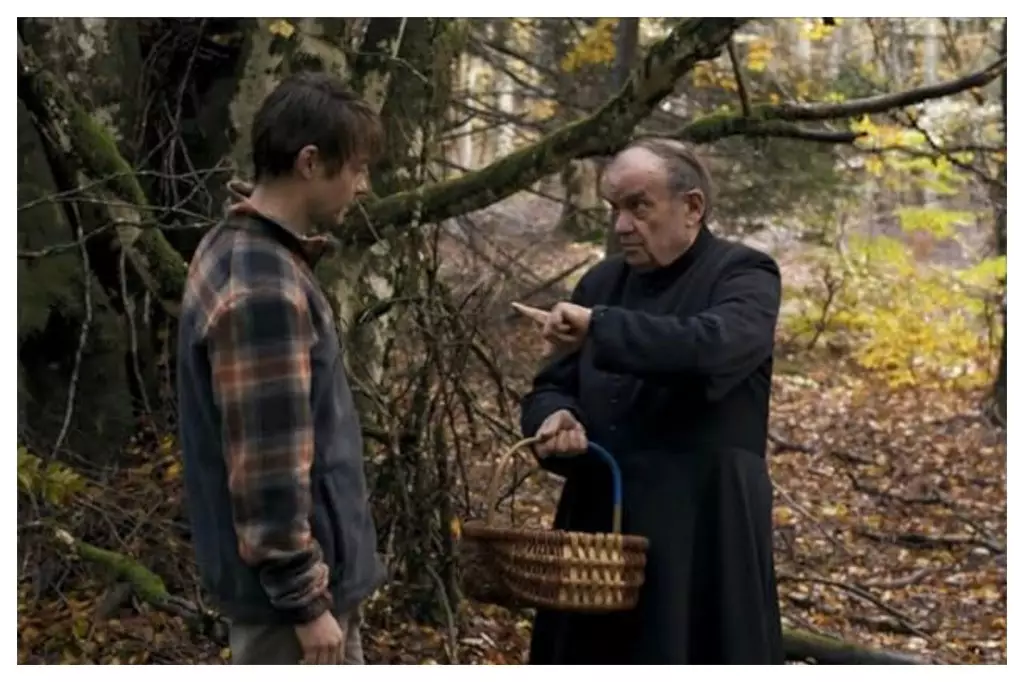Filmmaker Alain Guiraudie has been a bold architect of contemporary cinema, often diving into themes that others shy away from. With the anticipated U.S. tour of “Misericordia,” it’s essential to acknowledge how Guiraudie’s work dissects the intricacies of human relationships—especially those that venture into the unsettling. Unlike the predictable narratives that dominate the mainstream, Guiraudie’s storytelling feels raw and unfiltered, tackling elements of eroticism, violence, and social dynamics in ways that often leave audiences profoundly uncomfortable yet engaged.
The Unease of Domesticity
At the heart of “Misericordia” lies a juxtaposition that resonates deeply with viewers: the mundane against the extraordinary. The protagonist, portrayed by Félix Kysyl, navigates through a familiar facade of small-town life, a world which seemingly offers warmth and community but quickly descends into chaos. Guiraudie seems to argue that within every seemingly benign interaction lies the potential for darkness—an argument that feels ever more relevant in a politically divisive landscape.
One could argue that the film serves as a microcosm of modern America—shimmering with the veneer of civility while fostering rotten, unaddressed tensions underneath. The widow’s kindness contrasts starkly with her son’s jealousy and hostility. This personal conflict mirrors larger societal issues, as familial love grapples with ego, resentment, and desire.
Beyond the Screen: A Cultural Commentary
In light of its recent accolades, “Misericordia” boldly challenges the status quo, especially considering the fierce competition for the French Oscar entry. The film’s thematic depth goes beyond mere entertainment; it is almost a form of cultural commentary, reflecting the friction between differing generational perspectives. The loss of tradition juxtaposed with modern discontent permeates Guiraudie’s narrative, prompting audiences to recognize uncomfortable realities in their own lives.
This engagement with sociopolitical narratives is vital—especially during a time when dialogue seems fraught with division. By presenting characters that evoke a sense of empathy, even amidst their flaws, the film prompts viewers to reconsider their own prejudices and judgments. The story serves not only as a plot but a mirror reflecting societal conditions that are often ignored or unaddressed.
A Bold Narrative Structure
Moreover, through film festivals like Cannes, “Misericordia” stands testament to the unique storytelling that film can offer. It disrupts conventional narratives and crafts a space for challenging discussions. Sideshow and Janus Films’ efforts to showcase the film across multiple cities in the U.S. signals a demand for deeper narratives rather than just surface-level entertainment.
Indeed, the inclusion of a retrospective of Guiraudie’s past works on the Criterion Channel reinforces this notion—a curated collection that highlights not only eroticism but existential queries at the core of human experience. Each film adds layers to Guiraudie’s oeuvre, teaching audiences that entertainment can profoundly educate and provoke thought rather than serve as mere escapism.
In a landscape overflowing with predictability, “Misericordia” stands as a testament to the power of cinema to disturb, engage, and indeed, transform the way we see ourselves and others. It is a courageous endeavor—a bold step into the uncomfortable that is both thought-provoking and necessary.

